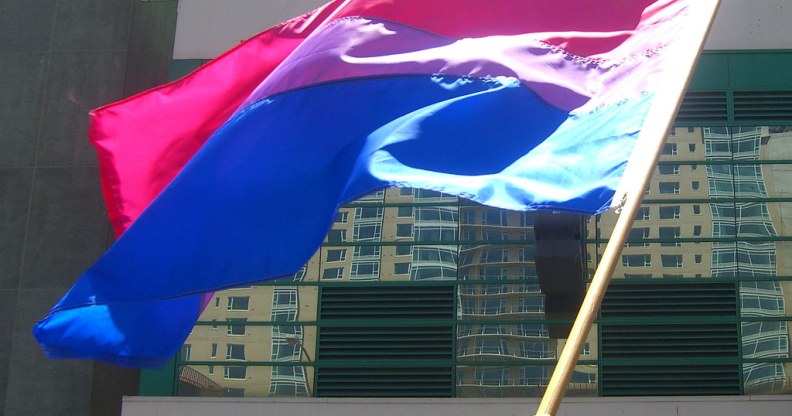Bisexual people are suffering serious health risks as a result of bi erasure and biphobia

Bisexual people experience unique stresses because of biphobia and bi erasure, which can lead to serious health problems. (Creative Commons)
Bi erasure and biphobia can have serious health consequences for bisexual people, according to a sexuality and gender minority researcher.
Sabra Katz-Wise, PhD, was a panellist for the first National Institutes of Health (NIH) bisexual health research workshop.
She wrote a piece for Harvard Medial School in which she says that although all LGBT+ people suffer from “minority stress”, which contributes to poor health, bisexual people experience unique stresses because of biphobia and bi erasure.
Bisexual people are victims of negative stereotypes, for example that bisexuality is a “phase”, and can feel “invisible” because their orientation is often assumed based on the relationship they are currently in. This can lead to inadequate healthcare.
Katz-Wise gave the example: “A bisexual woman who is in a relationship with a woman, but also has sex with men, may not be offered birth control or counselling about sexually transmitted infections (STIs) at a doctor’s appointment, because she is (incorrectly) assumed to be a lesbian and not at risk for pregnancy or STIs.”
The researcher also cited a 2019 study in the Archives of Sexual Behaviour, which showed that bisexual people are at greater risk for health problems including gastrointestinal problems, arthritis, and obesity.
Bisexual people are also more likely to suffer from mental health problems, and Katz-Wise suggested that this was because of “double discrimination”.
She wrote: “Bi+ people experience discrimination from both heterosexual and sexual minority communities, related to repeatedly needing to “come out” as bi+.
“This double discrimination can lead to isolation and loneliness, which can be harmful for mental health.”
She suggests that to improve their health bisexual people should be upfront with their doctors about their bisexuality, and connect with other bi people who can understand the unique stresses they face.
Those outside the bi community, she said, should “challenge stereotypes and reduce stigma, to increase acceptance of the bi+ community”.

